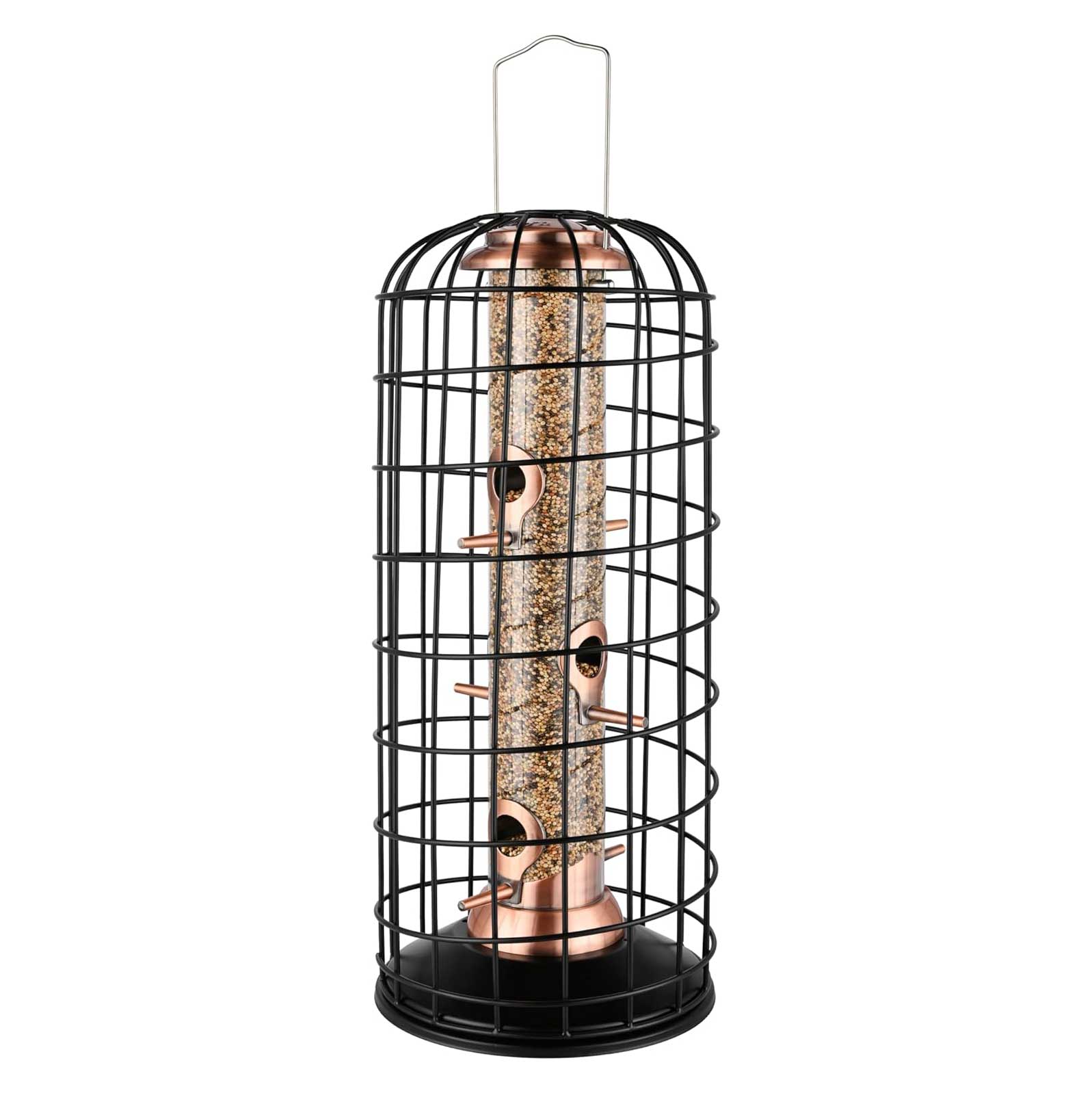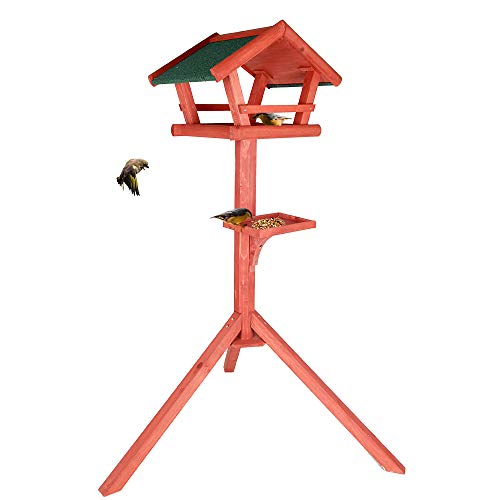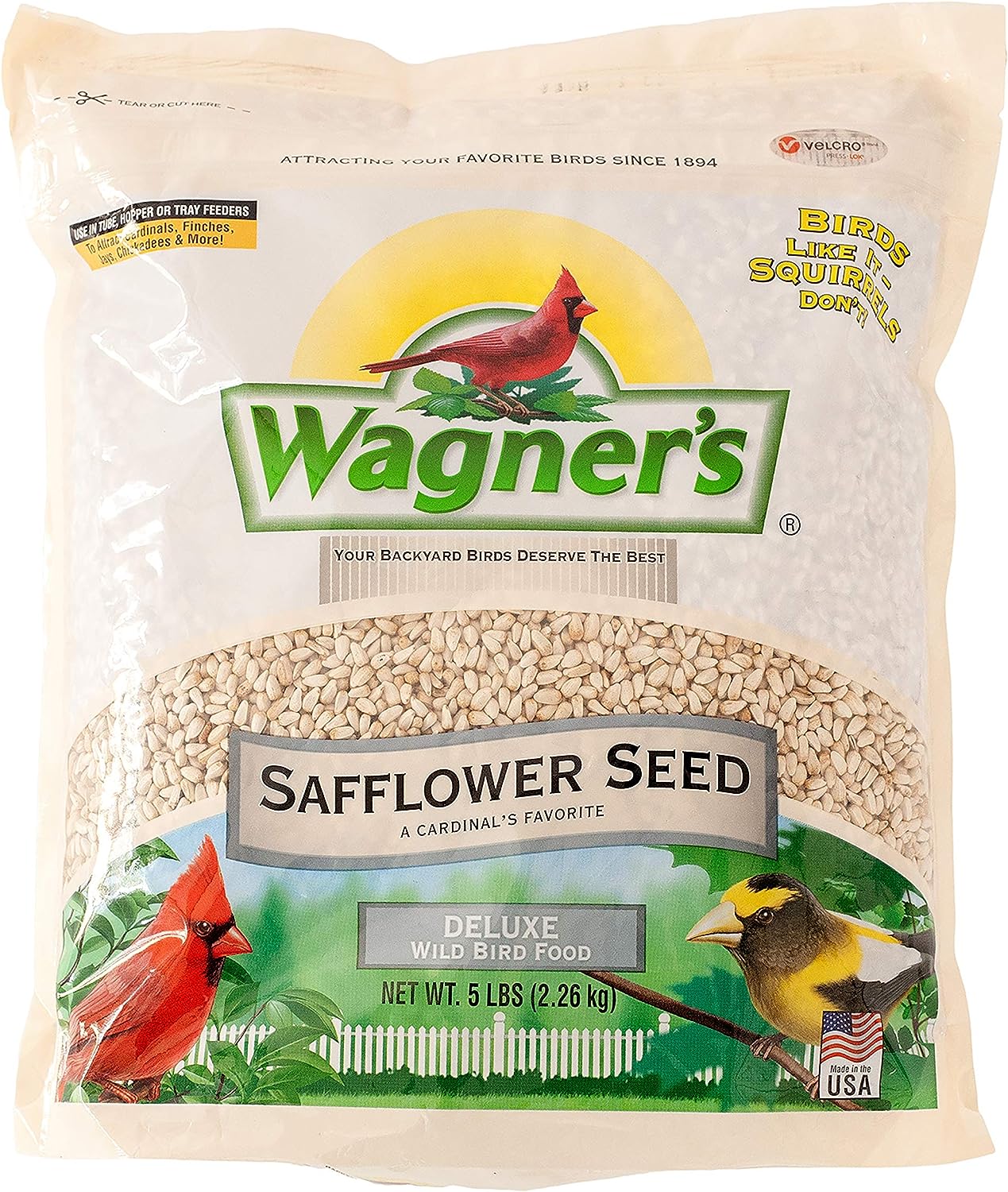How to Keep 'Bully' Birds Away From Feeders - 6 Simple Ideas to Give Songbirds a Chance
Expert advice on dealing with food-raiding crows, magpies, blue-jays and other unwelcome avians
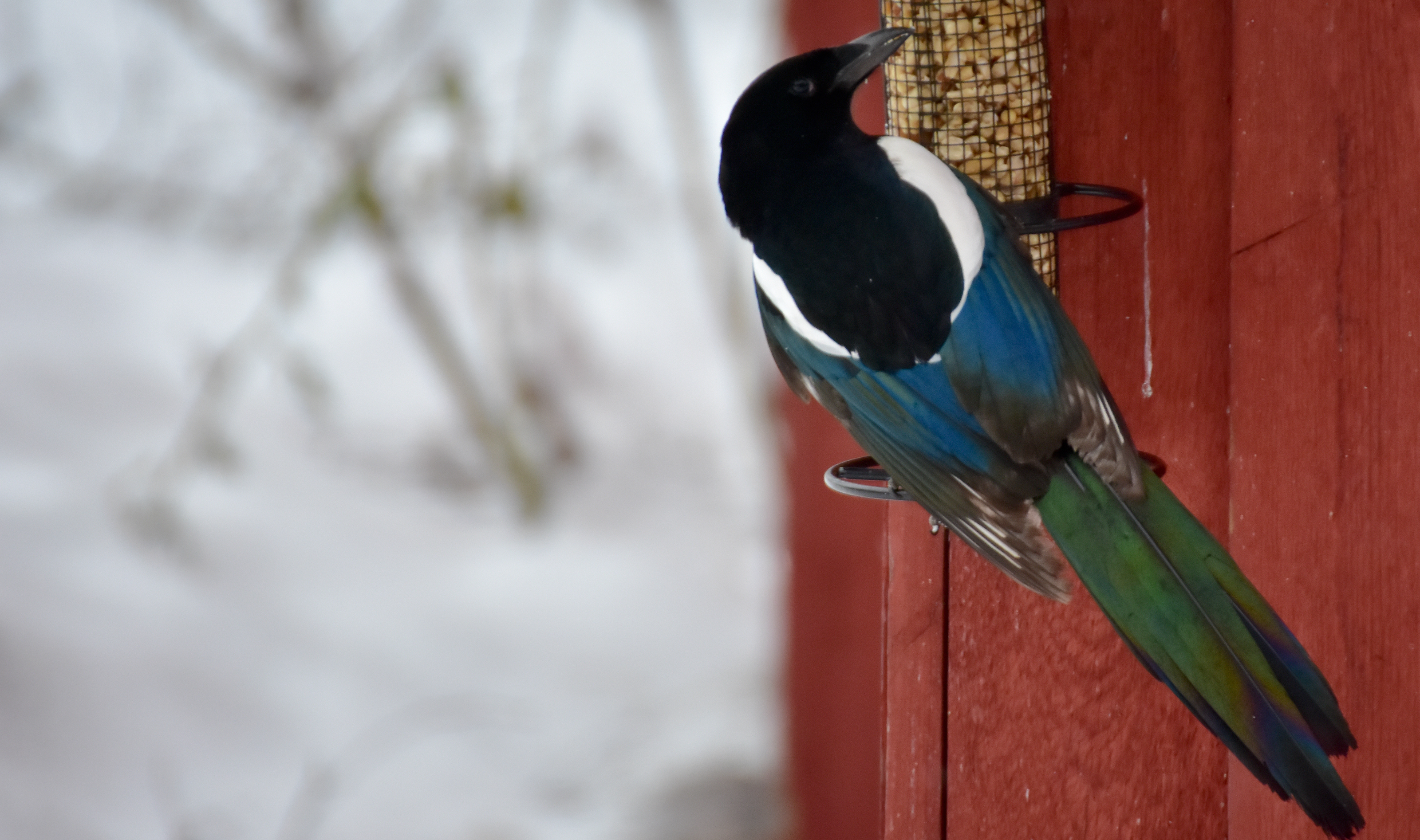
The Livingetc newsletters are your inside source for what’s shaping interiors now - and what’s next. Discover trend forecasts, smart style ideas, and curated shopping inspiration that brings design to life. Subscribe today and stay ahead of the curve.
You are now subscribed
Your newsletter sign-up was successful
From crows and magpies, to blue-jays and pigeons, it can be frustrating to see large birds devour the food you've left out for wrens, robins and smaller songbirds. Whether on their own, in pairs or flocks, you may have wondered how to keep big bully birds away from feeders.
We're not down on the big birds entirely, they need to eat too, but you may want to give smaller birds a head start. Let's face it, nuts and seeds for feeding birds can get pricey.
So if you want to leave food for smaller species or those that are endangered and need the extra help in your backyard, here's what avian experts suggest.
1. Choose a caged feeder or feeder guard
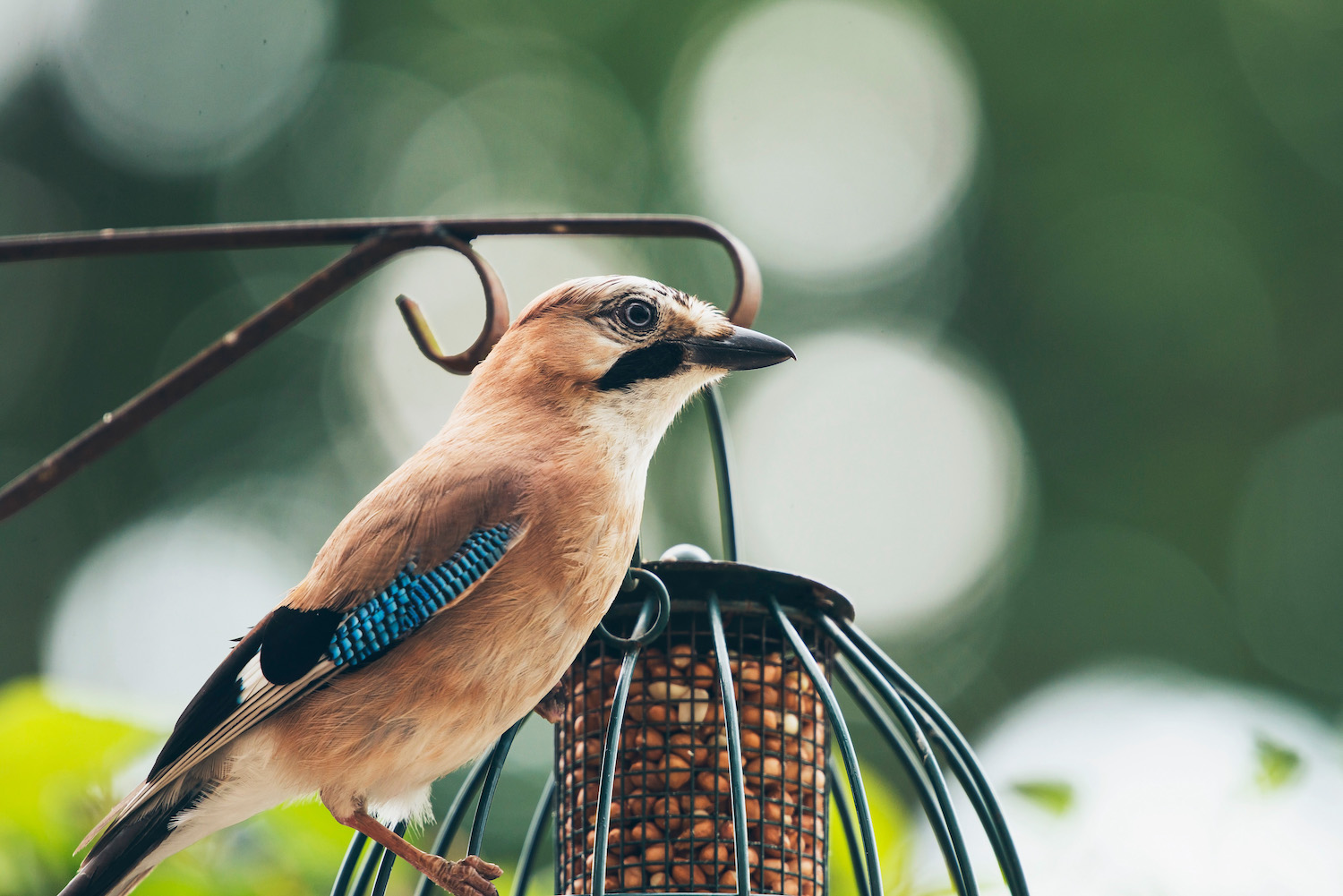
If your yard is prone to rodents or other raiders, you may have a head start. The strategies for deterring bully birds are similar to those on how to stop squirrels going for your bird feeder–such as choosing a caged feeder, or a feeder guard.
The advantage for smaller birds here, is that bigger birds, such as starlings, brown-headed cowbirds and common grackles can't fit through the outer cage to get to the seed in the inner feeder.
'Starlings and House Sparrows are introduced species in North America that can overwhelm bird feeders,' says Jen McGuinness, author of Bird-Friendly Gardening. 'Specially constructed feeder guards will help deter starlings from robbing bird feeders, which are usually grid-like squares that are not large enough for the birds to fit through.'
'A caged feeder can solve a lot of bully bird problems,' says Perky Pet's bird expert. 'The disadvantage is most cages won't accommodate medium-sized birds like Northern cardinals. However, woodpeckers with their incredibly long tongues will still be able to reach in and eat.'
The Livingetc newsletters are your inside source for what’s shaping interiors now - and what’s next. Discover trend forecasts, smart style ideas, and curated shopping inspiration that brings design to life. Subscribe today and stay ahead of the curve.
'We do advise checking caged feeders regularly, as small or juvenile squirrels can sometimes squeeze through,' says RSPB bird expert Helen Moffatt.
2. Buy seed they don't like
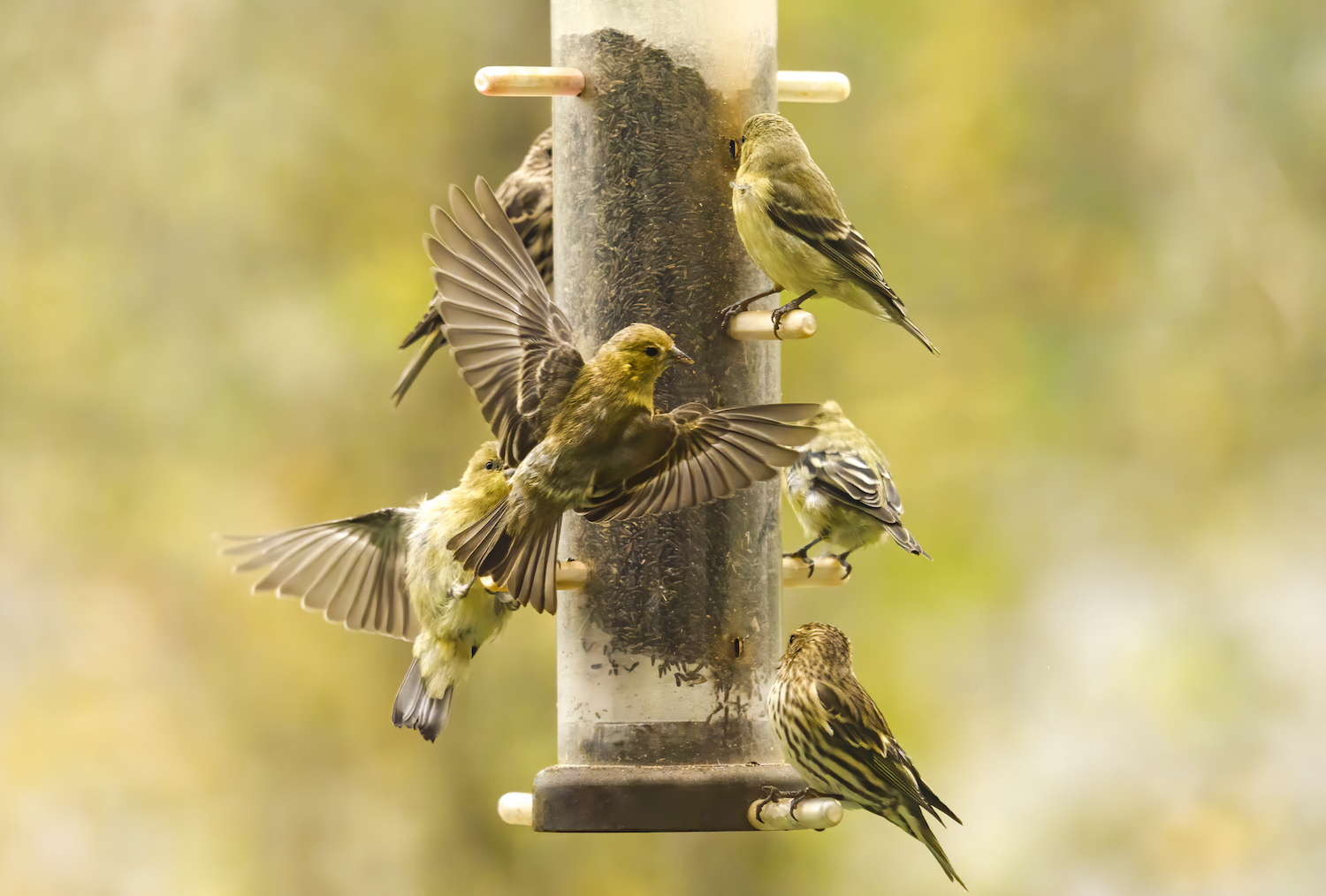
According to the avian experts at Perky Pet, most bully birds, such as crows, magpies and jays prefer bread. They'll also devour seed blends that contain corn, millet, wheat, and sunflower seeds.
To deter them from your feeder, fill it with Safflower (like this one from Amazon), Nyjer or Thistle seed instead, which will attract finches, cardinals, nuthatches and chickadees.
'Safflower seeds are bitter,' says Perky Pet's expert. 'Birds like the European starling, red-winged blackbird, and common grackle won't eat them–and neither will squirrels. It won't stop other smaller birds though, just allow one or two weeks for them to adjust to the change in taste.'
'Specialist seed feeders, such as a nyjer seed feeders have really small feeding holes, ideal for finch beaks,' says Helen Moffatt at the RSPB. 'Goldfinches especially love these tiny oil-rich seeds and will get plenty of calories from them, whilst larger birds struggle to access them at all.'
3. Offer a decoy with a mix of feeders
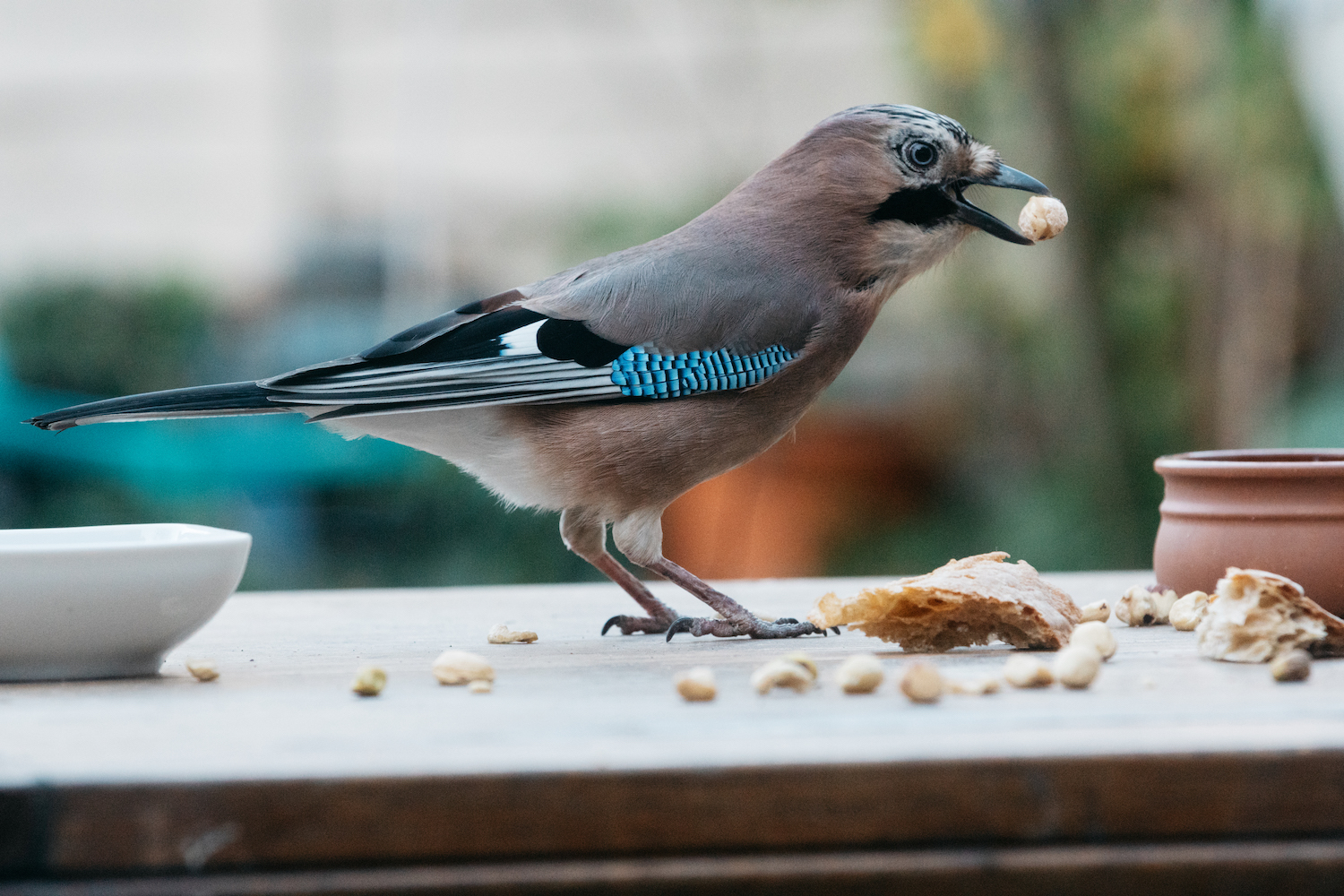
Given that larger birds like to eat seed blends with millet, corn and wheat, it's worth leaving some food that they like away from your other bird feeders.
In theory, this should deter them from food left for songbirds. Try a few tactics and see which works best in your yard.
'Some people worry when they see bigger birds such as Magpies and Crows on their feeders that smaller songbirds might not be getting their fair share,' says Helen Moffatt. 'But try not to see certain birds as undesirable – bigger birds struggle to take in enough calories to keep warm during cold weather too.
'Having a mix of different feeders can help ensure all the birds who visit can find some food. Having a table or general feeder will provide somewhere for larger birds to eat too. As well as bird seed and fat balls, you can also put out food from your own kitchen, such as soft fruit like halved apples or some mild grated cheese.
'Putting out food is a great way to support garden birds, but it’s also vital to ensure your feeders are regularly cleaned, as germs can build up and cause disease outbreaks. We recommend cleaning feeders, tables, and baths at least once a week,' she continues.
4. Don't provide a perch
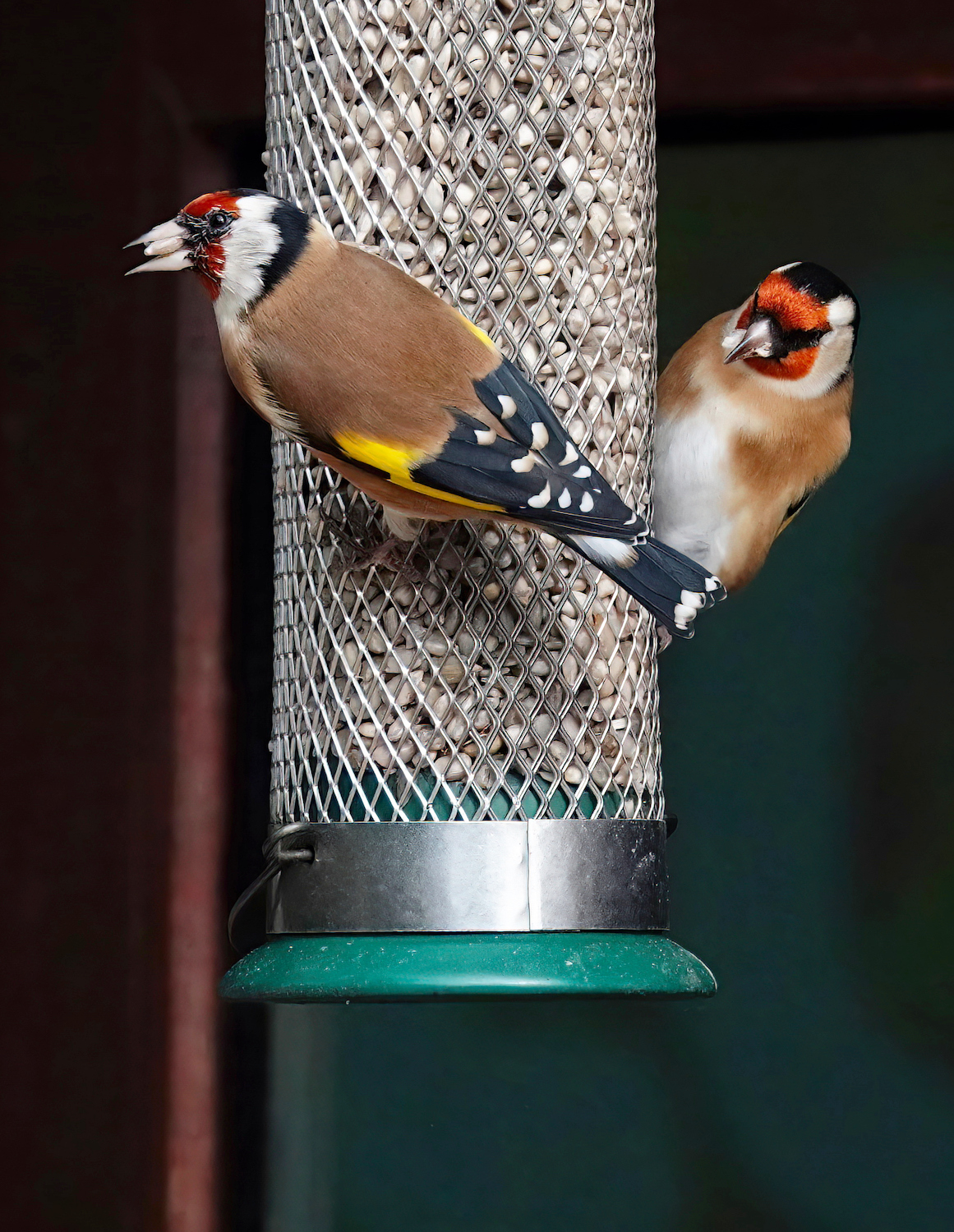
Feeders with collapsable perches won't support the weight of heavier birds (or squirrels for that matter). Upside down feeders are another option.
'These perches collapse under the weight of heavier birds, so they leave the bully with nothing to perch on,' says Perky Pet's expert. 'Alternatively, some suet and seed feeders require birds to cling, which starlings can't do, but finches, woodpeckers and other small birds can.'
'Don’t put seed out in large tray feeders or on the ground and avoid throwing food scraps into an open compost heap,' says Dr Emma Greig, project leader at Feeder Watch from The Cornell Lab of Ornithology. 'If you stick to small seeds from more “dainty” feeders, you may be able to minimize visits from these larger birds.'
'Feeders with small feeding ports, such a small tube feeders or thistle sock feeders, can be useful when you want to attract small birds but keep the larger species looking for food elsewhere.'
5. Grow native plants
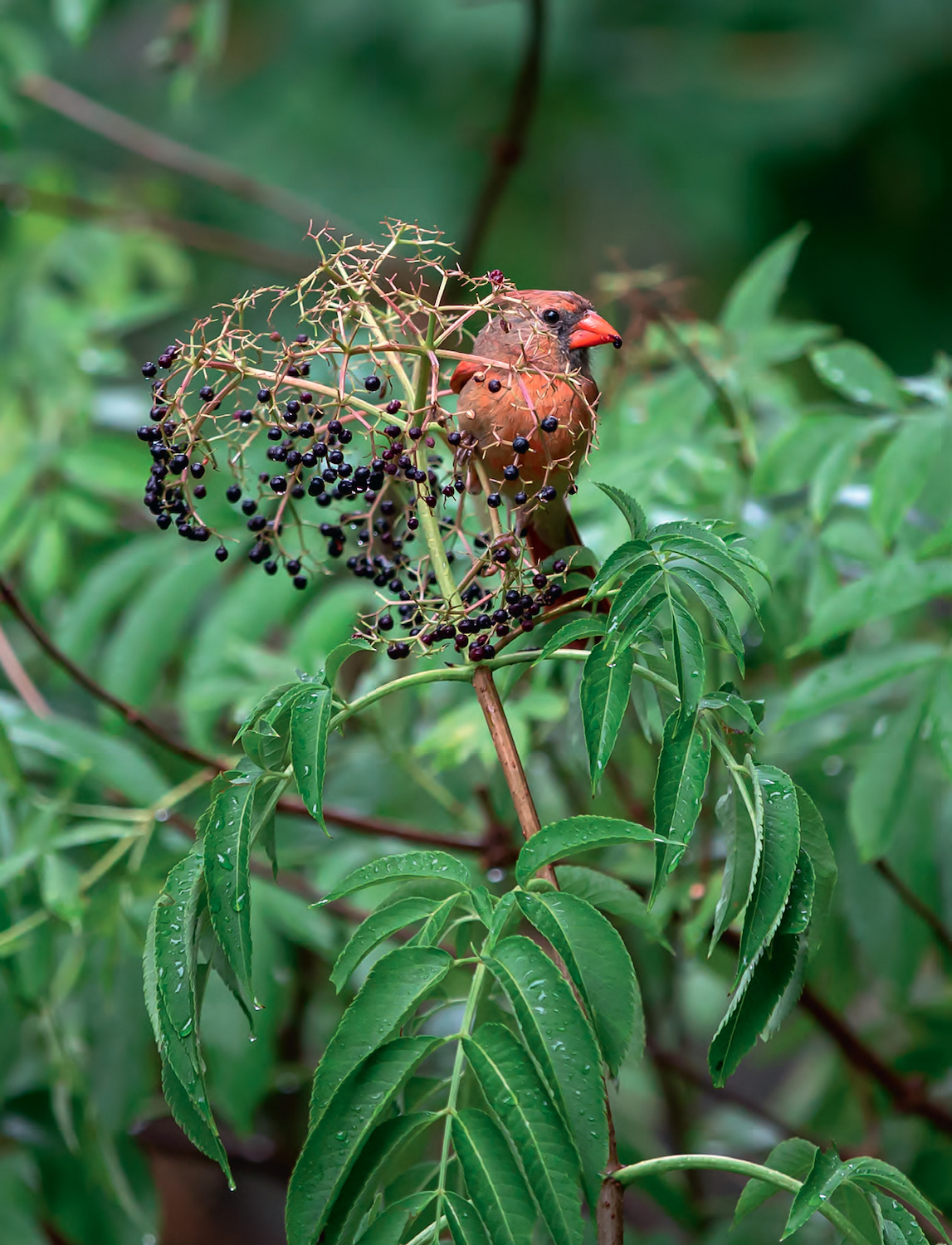
The more food there is available for birds in your yard (and elsewhere), the less need there is for them to fight over a feeder. Wildlife gardening can help.
'Attracting birds to a garden by providing supplemental food, such as seed, suet, or nectar, is common when most “natural food” is scarce or in short supply. But putting up feeders is only one way to support songbird populations,' says Jen McGuinness.
'To attract the most diversity of birds, grow native plants. In fact, native plants–which provide either the insects, seeds, or berries that birds need to thrive—will feed a wider variety of birds than bird feeders alone.
'Native plants are a food source for insects that are acclimatized to the region. Not all insects are fairly obvious for us to see—we may only notice the signs that they were present, such as holes in leaves.
'But these native insects play a vital role in providing food for birds. Locate the native plants that will grow best in your backyard by entering your 5-digit zip code into the National Audubon Society Native Plants Database.'
6. Avoid pesticides

Birds eat bugs, so it's important not to kill everything in sight with pesticides. Again, the more natural food available for all birds, the less likelihood of bigger species raiding your feeder.
'Fewer native insects available on a property means less food for songbirds,' says Jen McGuinness. 'Using pesticides to eliminate unwanted insects will also affect the beneficial garden insects that are on your property—not just the insects you find undesirable.
'An example is when gardens are sprayed to remove mosquitoes. The spray will not target just the mosquito, but will detrimentally affect many other insects as well, such as caterpillars which will become butterflies.
'Birds will have even less food to choose from if chemicals are used in the garden. Bird-friendly gardening includes incorporating organic gardening with no pesticides or herbicides.'
Jacky Parker is a freelance lifestyle journalist and writer, producing a wide range of features for magazines and digital platforms. She has written for Livingetc and its sister titles, Homes & Gardens and Country Homes & Interiors for more than 15 years, both as a freelance contributor and as Acting Digital Editor and Acting Style Content Editor, regularly reporting on the latest interiors, gardens and wellness inspiration, speaking to experts in their respective fields, and discovering the best tips.
Jacky has also written for other publications, including Sunday Times Style, The Telegraph, Architectural Digest, House Beautiful, ELLE Decoration, Red, Grand Designs and more.
